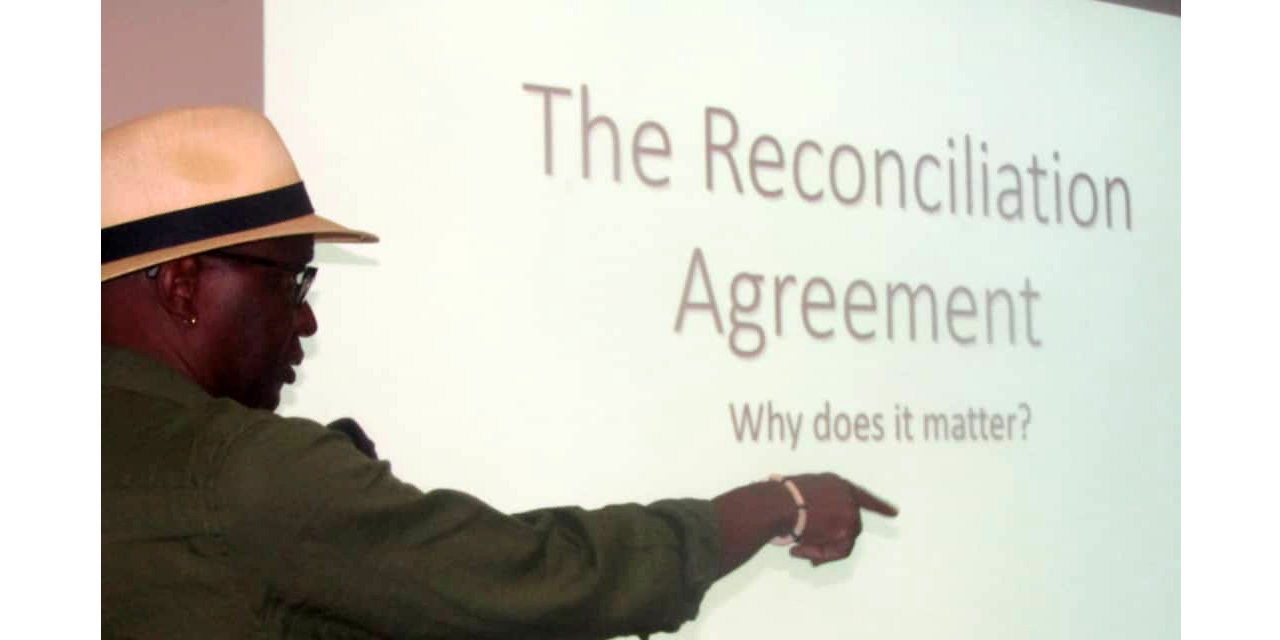Staff Writer
The National Assembly (NA) having concluded the debate on the Reconciliation Agreement (RA) when on 1 December the Minister of Defence and Veterans Affairs, Frans Kapofi, made his replying and concluding remarks.
But whereto and wither to with it now? Begs the question pertinently. More so given the discernible differences within the government’s higher echelons, notably between Kapofi, and Prime Minister, Saara Kuugongelwa-Amadhila. Whether the matter should in the first instance have come before the National Assembly or not albeit Kapofi’s own words that the government was not obligated to have brought the RA, also known as the Joint Declaration (JD).
Nakuta thinks Kapofi’s position is untenable and needs scrutiny since the Executive (Cabinet, Government) was and has been delegated by the National Assembly, which is the depository of the mandate. “Anything contrary amounts to an unlawful dictation,” maintains Nakuta. He adds that Parliamentary decisions are not insulated from judicial scrutiny.
Nakuta was one of two home based Namibians, together with liberation struggle veteran and pioneer of the Nama genocide movement, Ida Hoffmann, who last Thursday participated in a virtual discussion to mark the International Day for the Commemoration of the Victims of Genocide hosted by the Ovaherero and Ovambanderu Genocide Foundation (OGF). The Day is commemorated on 9 December.
Nakuta says the Namibian government’s negotiating team seems to have ignored the NA mandate as per the 2006 motion and eventually resolution, thus the RA is substantively and procedurally flawed. “It’s conspicuously silent on reparations, not framed in reparatory language and the quantum equals to insulting and spitting on the graves of ancestors,” says Nakuta.
All these, according to Nakuta, a deliberate ploy by the government of the Federal Republic of Germany to avoid legal liability from the criminal acts of Imperial Germany. What the RA instead does is to conflates reparations with development assistance. While this may be understandable from a German government avoiding liability, Nakuta does not understand why on its part the Namibian negotiating team could have overlooked such cardinal aspects, including the silence of the RA on those who fled to Botswana and South Africa?
“The German position was accept our offer or go away empty-handed. That is the opposite of decolonisation. Germany negotiates on the handling of colonial crimes of violence and genocides as if it were negotiating fishing quotas in Brussels: no holds are barred and you try and rip the other side off. This is completely inappropriate given the nature of the matter at stake.” Nakuta quotes Professor Jürgen Zimmerer to illustrate the German government’s attitude throughout the negotiations, saying it is reminiscent of superiority and “baaskap” (bossiness) and colonial mentality, where and when black lives did not matter and there was no respect, remorse but despicable arrogance.
Nakuta says the attitude of the Namibian government has been paternalistic. It needs to depoliticise the issue, show political maturity and cast away the legacy project syndrome. Nakuta feels consistent with the 2006 motion, a representative and capacitated negotiating team needs reconstituting to negotiate “full and effective reparation”. Reparation as opposed to development assistance with cardinal elements such as restitutions, compensation, rehabilitation, satisfaction and guarantees of non-repetition.
Lastly, he thinks the affected communities needs to have a systemic approach dealing with a broader spectrum of German colonialism rather than being episodic, dealing with specific episodes like 1904-1908. “Lothar von Trotha’s extermination orders were not the beginning and end of German’s genocidal acts perpetrated against indigenous communities,” Nakuta maintains.




